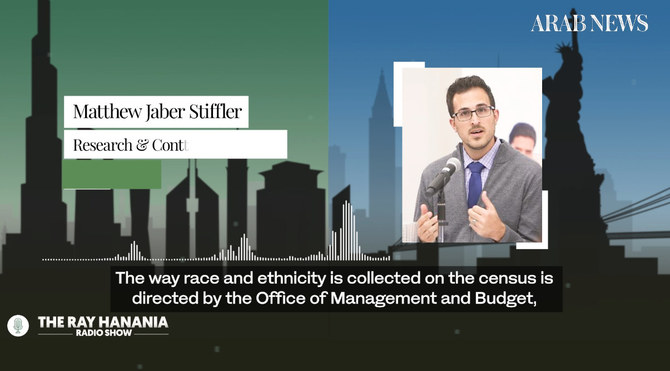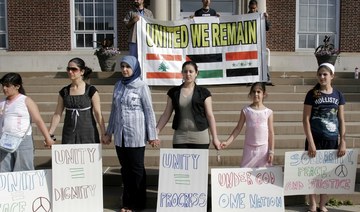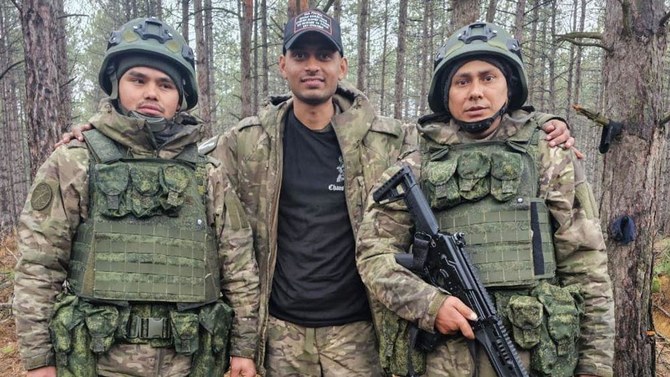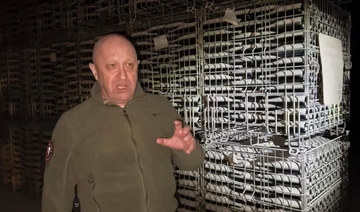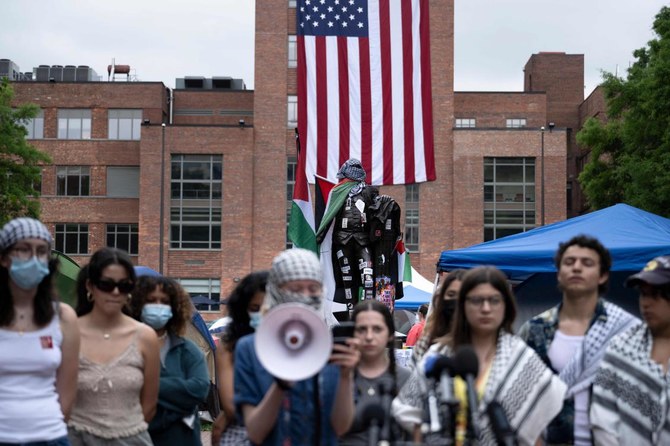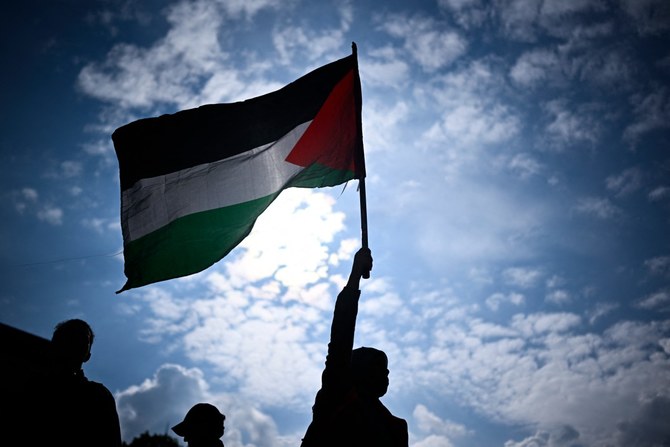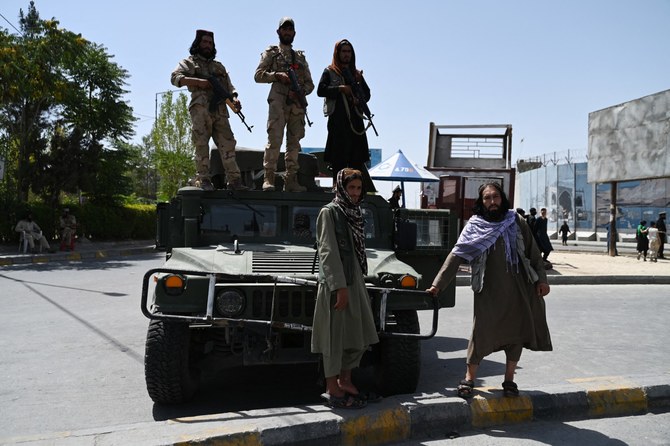Experts warned on Wednesday that the lack of recognition and inclusion in the US Census continues to undermine the strength of the Arab American community.
Because the demographics of their community are not precisely measured, Arabs in the US fail to benefit from more than $80 billion in Federal grants, and they are excluded from policies designed to enhance political representation, professor Edmund Ghareeb and researcher Matthew Jaber Stiffler said during a discussion broadcast live on the Ray Hanania radio show. Even their sense of community pride is undermined, they added.
Currently the census does not have an option that allows people to identify as Arab or Middle Eastern. Instead they are forced to identify themselves as white.
Ghareeb, an author and specialist on Arab American affairs, and Stiffler, who works with the Arab American National Museum in Detroit, agreed that this “census exclusion” is preventing Arab Americans from fully enjoying the benefits of life in America.
“The way race and ethnicity is collected on the census is directed by the Office of Management and Budget, and because of that it applies to all federal agencies,” said Stiffler, who also leads a national research initiative through the Arab Community Center for Economic and Social Services (ACCESS), the nation’s largest not-for-profit Arab American grassroots social-service agency.
“For instance at the office of Minority Health, which is a federal agency, Arab Americans cannot get grants to study the health of Arab Americans because we are not considered a minority — we are considered a part of the white community. It is not just the census, it is the fact that Arabs are not counted all across all of the government.”
Ghareeb, who has taught at the American University in Washington, Georgetown University and George Washington University, said the damage caused by this long-running failure of the census to recognize Arab ethnicity has been significant.
“The census is important primarily because, right now, Arab Americans are not able to participate as fully as other communities in getting government positions, for example, or support in the health area and the unemployment area,” he said.
“Of course, for some it is more important than that: it is the recognition and identity of your own community.”
Ghareeb and Stiffler identified a number of ways in which Arab Americans lose out because their ethnicity is not recognized by the census. They said, for example, that it affects the community’s political clout, access to federal funding, its sense of community pride, and leads to marginalization by mainstream businesses and industries, including the mainstream news media.
“It is really tough because it really impacts everything, from education to health to political representation,” Stiffler said. “The Arab American community does not see itself. We don’t even know how many of us there are. We have estimates but they range from 2.5 million to 4.5 million.
“So I think it is really about seeing us, and seeing us in the industries that we are in. We know Arab Americans are very entrepreneurial but if you go to all of the federal business indexes, Arab Americans are not listed as being a group that owns businesses. So it is really hard to see the impact that Arab Americans have made, if we are not counted.”
Ghareeb said part of the problem lies in the varied nature of the community itself, which includes people from 22 Arab nations but also reflects the sub-ethnicities within each country. He added that the community needs to become more active and more demanding of its rights.
“It’s important because of the politics as well, especially when it comes to foreign policy and what is going on in the region,” he said. “I think that when Arab Americans have a voice they will also have more of a voice to influence American foreign policy. All of these things are extremely important.”
As a topical example of a way in which Arabs are excluded from official consideration as a distinct community in the US, Stiffler cited the management of the COVID-19 pandemic.
“In Southeast Michigan, ACCESS, the largest Arab American community non-profit, has given 20,000 doses of the COVID vaccine in the past few weeks,” he said.
“If you go onto the Michigan State dashboard — it would take some work but you could find this information — it says that of those 20,000 doses, two were (given to Arabs) because that is just the way (it is): it is very difficult to get Arabs identified in any of this data. So it looks like only two Arabs were vaccinated by ACCESS and not what was more likely 15,000.”
Both experts said they favor a “MENA” category for identification, rather than “Arab,” because this would allow each individual Arab identity to be included. A MENA category has been considered as a category for ethnicity but its inclusion was stymied by lack of support from sitting presidents, who have the power to influence the contents of the census without seeking congressional approval.
Ghareeb noted that census categories for Asians and Southeast Asians were added as a result of presidential directives.
“There is no doubt that the Arab American community is losing some important benefits that other communities have achieved,” he added. “My preference based on what the science and the data tells us is right now is that MENA is the best category.
“And the way the census was going to do it was they were going to have MENA (as an option), but it was going to be a write-in option. You could put anything on that line — Iranian, Lebanese, Chaldean — and then they were going to count all of that. So not only would we get the MENA count but we would get the disaggregated counts of all these other ethnicities and nationalities so we would know who everybody is.
“It was going to be wonderful. Of course, that didn’t happen. But I think the broader the category, the better. Let people self-identify under that and we will count everybody that way.”
• The Ray Hanania Show is broadcast in Detroit on WNZK AM 690 Radio and in Washington DC on WDMV AM 700 radio at 8 a.m. on Wednesday mornings. Hosted by the US Arab Radio Network and sponsored by Arab News, the leading English-language newspaper in the Middle East, the show is also streamed live at Facebook.com/ArabNews. The radio podcast is available at ArabNews.com/RayRadioShow.


